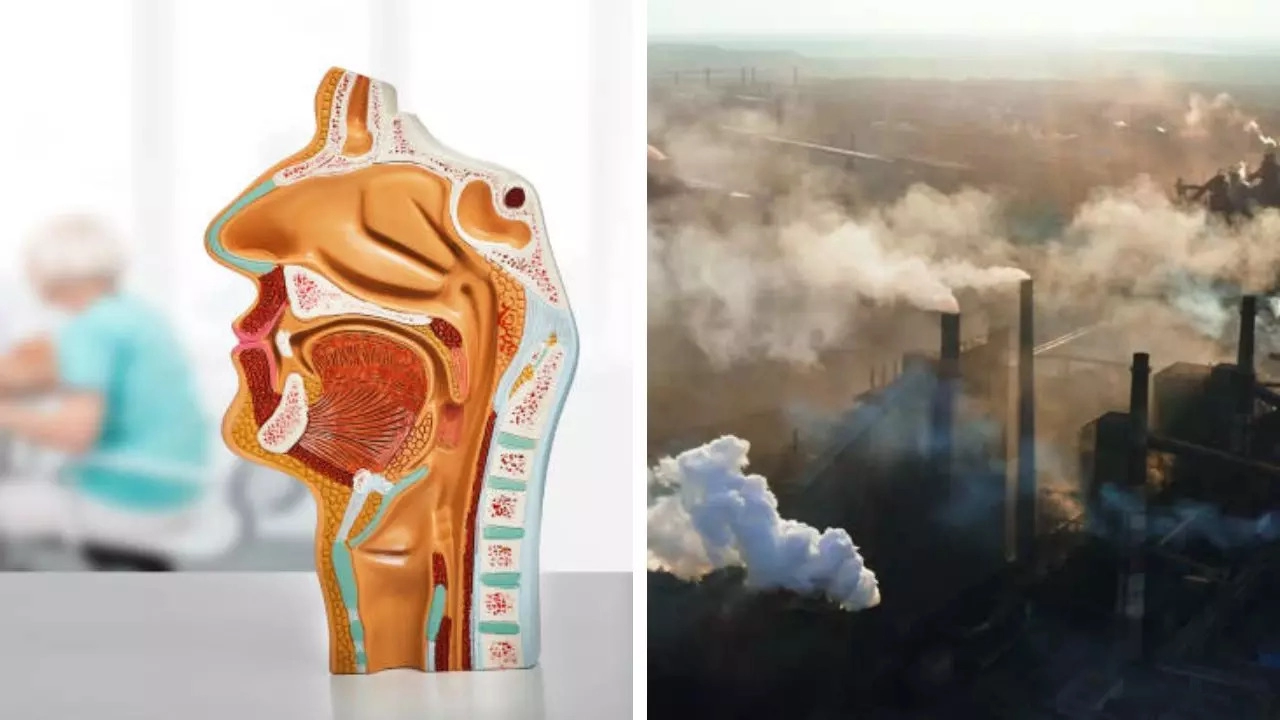Ashima Sharda Mahindra • 05 Oct 2024
Climate Change, Air Pollution Is Worsening Ear, Nose And Throat Issues; Expert Explains How

Rising pollution and temperature is deteriorating the air quality - impacting the health of the your nasal and respiratory system
Major shifts in temperatures, climate, and heightening pollution levels around us are taking a huge toll on our health and well-being. According to experts, a greater number of people are experiencing more than just discomfort from the extreme heat or cold. Apart from just being recognized as a simple factor in aggravating different kinds of illnesses – climate change is now also a growing factor in a number of Ear, Nose, and Throat (ENT) problems among people of all ages.
According to experts, it is leading to longer allergy seasons, along with conditions of asthma and sinus infections becoming worse. “Many people may not realize that these environmental changes are behind their worsening symptoms.” Dr. Sanjay Sachdeva, Senior ENT Consultant, HearClear India, told Times Now. Dr. Sachdeva said there is an intricate link between climate change and the deteriorating state of ENT health. “Rising temperature is responsible for shifting patterns of seasons, rainfall, humidity, and rising carbon dioxide levels,” he added.
What are the side effects of climate change on ENT?
Experts say rising pollution is deteriorating the air quality, and severely impacting the health of the respiratory system - including the nasal passages, sinuses, and throat. Environmental pollutants like particulate matter, allergens, and airborne irritants exacerbate allergies, trigger asthma attacks, and contribute to chronic sinusitis.
“Along with this, the rising incidences of air pollution and microbial contamination together meddle with the functioning of the immune system. All the factors together deteriorate the air quality and increase the concentration of particulate matter in the air,” said Dr. Vivek Kumar Pathak, Senior ENT consultant at HearClear.
According to Dr. Pathak, rising temperatures and changing patterns of rainfall and humidity also provide ideal conditions for the proliferation of outdoor and indoor mold. “Promoting the growth of microscopic arthropods, commonly known as dust mites increases the cases of fungal attacks,” he added.
Worsening the respiratory conditions magnifies the allergic reactions accompanied by instances of inflammation in the affected person. Doctors say climate change can impact your hearing due to changes in atmospheric pressure, which affects the balance system of the inner ear – leading to dizziness, vertigo, and other balance issues.
Lifestyle factors add to ENT conditions
Experts also blame the lifestyle choices that influence ENT health with factors like smoking, poor nutrition, and lack of physical activity weakening the immune system, and increasing susceptibility to infections.
Preventive measures to take care of your ear, nose and throat
According to experts, to safeguard your ENT health, you need to promote good quality indoor air, along with hygiene and cleanliness. A few tips include:
- Indoor air quality measures like ventilation, air filtration, and allergen control
- Keep your ears dry and maintain good ear hygiene to reduce the risk of infections
- Do not use too much of earplugs when engaging in water-related activities
- Always maintaining clear nasal passages for breathing easily, preventing infections, and reducing allergy symptoms
- Eat a diet high in antioxidants and omega-3 fatty acids like salmon and flaxseeds, which help strengthen your immunity levels and maintain proper blood circulation.
Get Latest News Live on Times Now along with Breaking News and Top Headlines from Health and around the world.